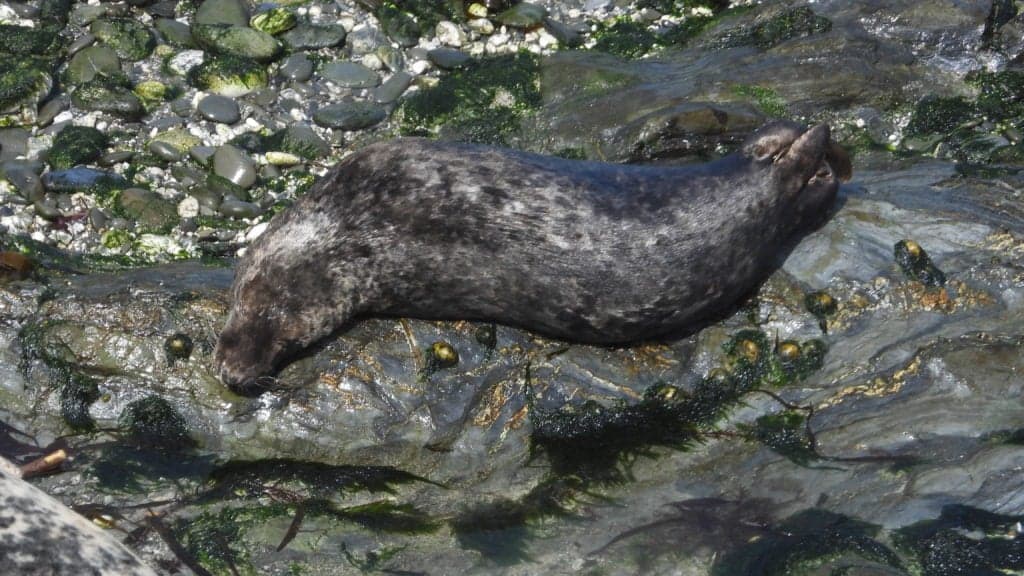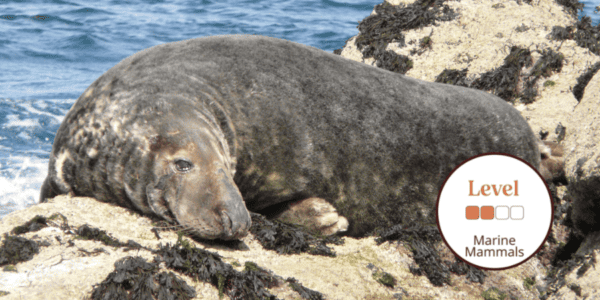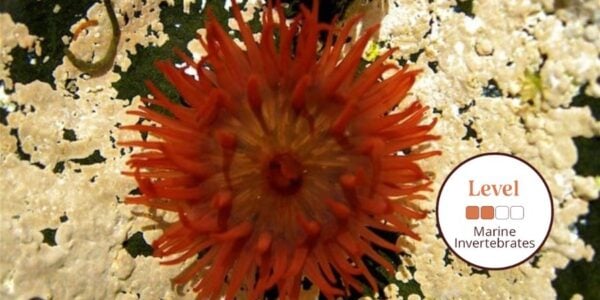Developed and led by leading seal conservation experts at the Seal Research Trust, this practical online course aims to equip participants with the knowledge and skills required to start recording and surveying seals to become an effective seal ambassador.
Through the demonstration of techniques and discussion of best practices, participants will have a solid foundation to collect the necessary data to collate the biological records required to inform conservation practices in the UK. Get involved in the protection of one of the nation’s favourite marine mammals by attending this course!
What will be covered during this course?
- Surveying Seals
- Recording Seals
- Using Field Evidence to Illustrate Issues and Influence Decision Making
- Photo Identification of Seals
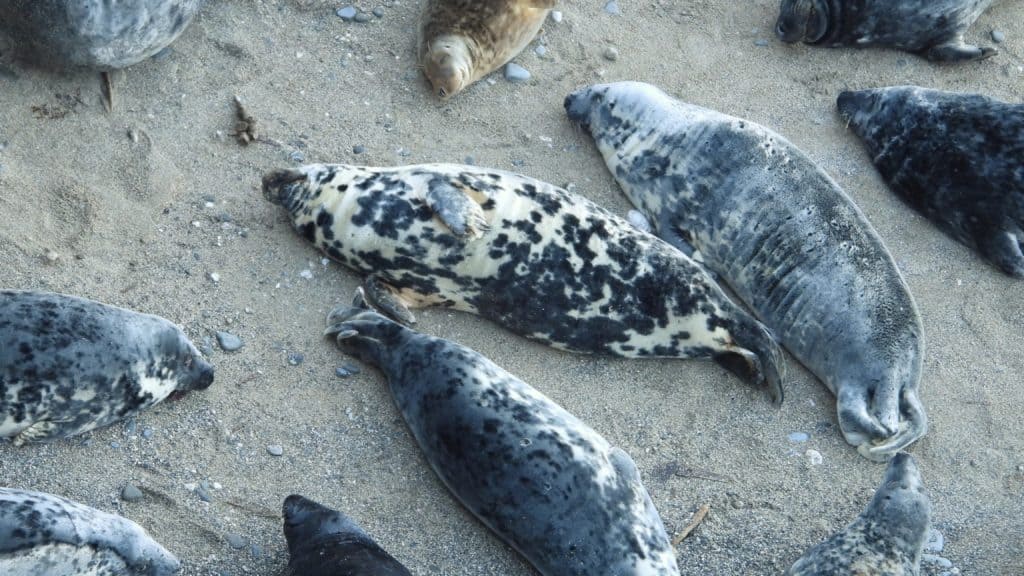
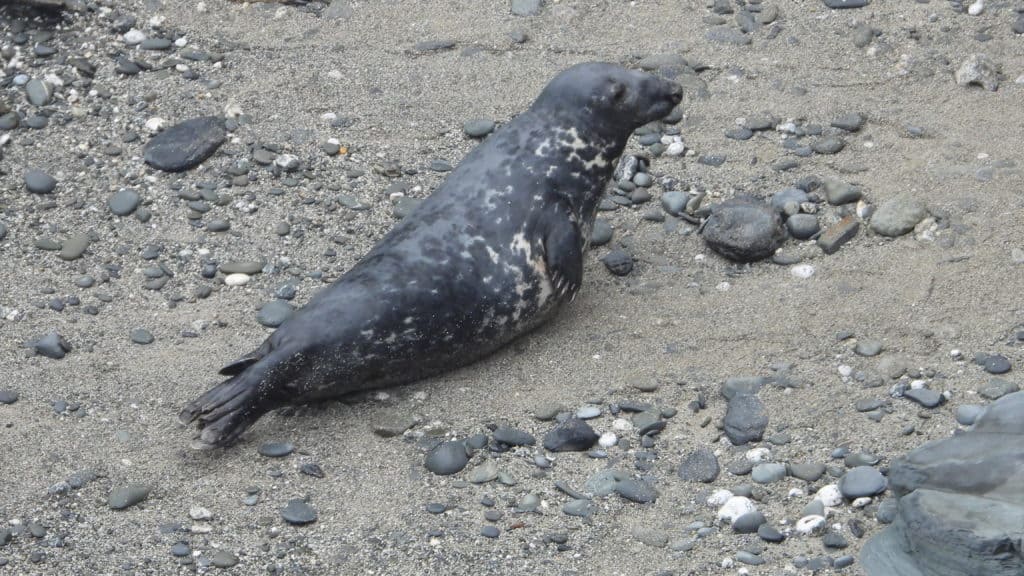
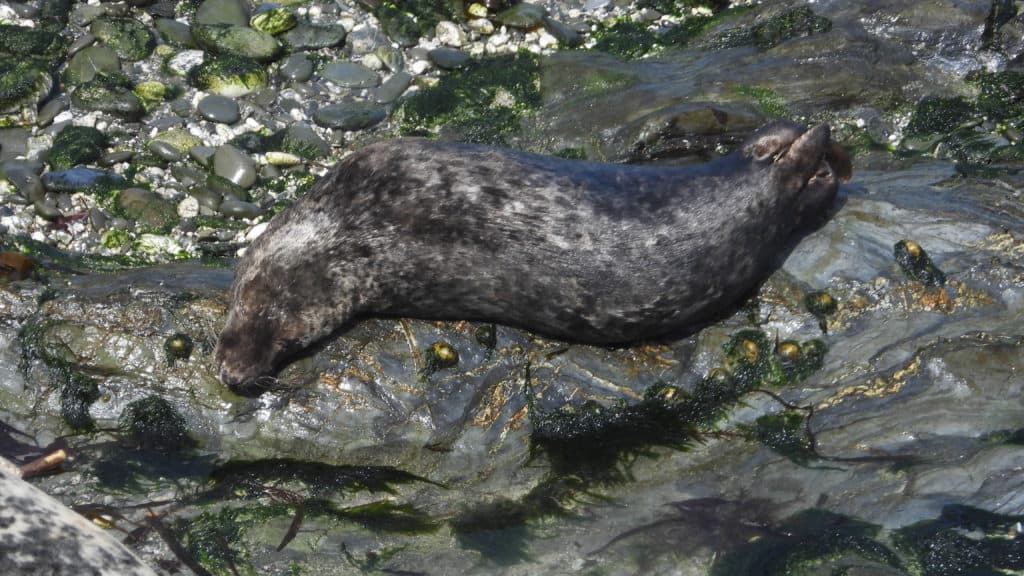
Read More
This intermediate level course is a step into developing your skills in surveying and recording seals in the field. It is a perfect progression on from our beginner level Discovering UK Seals: Identification, Ecology and Conservation course.
During this course you will learn about the key issues seals face globally, how to record these issues, with ethical best practice for surveying seals whilst also keeping yourself safe and comfortable. You will learn how to conduct your own surveys from land, sea and the air, and to subsequently process and manipulate the data you collect using basic digital tools. You will also learn how to classify the age and sex of both grey and common seals from photos. Most importantly, you will understand how to use these skills to protect and conserve seals.
Whether you live inland or near the coast, this course provides opportunities to develop and utilise your seal field skills. The practical course activities have been carefully designed with video demonstrations, so that you can either gather your own data in the field or complete the activities entirely from the comfort of your home using resources and field images provided by the Seal Research Trust.
The approaches and methods in this course are informed by the work carried out by the Seal Research Trust in the UK, a multi award winning marine conservation charity.
By the end of the course, you will be able to:
- Understand the methods of surveying seals in the wild
- Understand how to collect data and record seals as a local ambassador or for statutory agencies
- Use field evidence to demonstrate threats to seals and effectively communicate findings
- Understand the importance of photo identification, its strengths, limitations and outcomes
- Put these skills to use to promote the protection and conservation of seals
Who Should Attend? – Marine conservationists, nature enthusiasts, students, ecological recorders, seal ambassadors or volunteers.
Knowledge Level – Intermediate. Level descriptors can be found on the following webpage: Framework and Course Level Descriptors
Prior Knowledge – Some existing knowledge of seal biology, ecology and conservation will be beneficial for this course. We recommend attending the Discovering UK Seals: Identification, Ecology and Conservation course before attending this one.
Please note – bookings will close 2 working days before the course start date to allow for all participants to be enrolled to the online platform – bookings will not be taken after this time.*
*Bookings will close sooner if course capacity is reached
Understand how our online courses are delivered here.
Live Webinar Information
There are 4 webinars for this course, taking place at the end of each week. Please see the date listing below for the day and time.
Please note – webinars will be recorded and uploaded to the virtual learning platform for learners unable to attend.
About our Partner, the Seal Research Trust (SRT)
Founded by Sue Sayer in Cornwall in 2000, SRT is a multi-award-winning, evidence-based conservation charity coordinating a huge regional network of citizen scientists. Their shared focus is passionately protecting our precious marine species and their environment for future generations to enjoy. SRT partner with numerous public, private and voluntary organisations across the UK and globally to give seals a voice to influence planning, policy and legislation.
About the Tutor
Sue Sayer
Sue is an internationally renowned researcher and published author. For over 20 years, she has spent thousands of hours observing seals in the wild from land and sea in Cornwall. To Sue, there is no such thing as an average seal. Each one looks different, has an individual personality, range of habits and migration route around the Celtic Sea and beyond! Sue’s philosophy is inspired by the Ecozoic and is all about ‘sharing our seas successfully’. Sue has been awarded an MBE for services to Wildlife Protection and Conservation.
Example Timetable
Timetable
Week 1: Surveying Seals
Self-study material available from the start date.
Week 1 Live Webinar at the end of week 1
Week 2: Recording Seals
Self-study material available after week 1 webinar
Week 2 Live Webinar: at the end of week 2
Week 3: Using Field Evidence to Illustrate Issues and Influence Decision Making
Self-study material available after week 2 webinar
Week 3 Live webinar at the end of week 3
Week 4: Photo Identification of Seals
Self-study material available after week 3 webinar
Week 4 Live webinar at the end of week 4
The final deadline to complete any outstanding assignments and self-study components is 2 weeks after the final webinar
Time commitment: This course will require a minimum of 2-3 hours of your time each week, applied flexibly across the 4 weeks. This includes covering course materials on our Moodle learning platform and the Zoom session.
What's Included
The course has been carefully created to help you continue to build and develop your knowledge as the course progresses. With content crafted to the online Moodle Platform and bespoke to the Field Studies Council.
The course includes:
- 45-minute interactive weekly Zoom workshops to connect with the tutor and other participants
- Expert tuition for which the Field Studies Council is renowned
- Activities to work on independently in advance of each Zoom workshop
- Tailored course completion certificate
Once registered, you will follow well-illustrated, user-friendly ’books’ to pick up knowledge. Quizzes and skill checks will give you instant feedback on your learning. Forums give students the chance to interact with each other as well as a place to share work.
Bursaries and Subsidies
Student Discount
This course is eligible for a student discount. If you are a current student, please use discount code BioStudent20 at checkout for 20% off all Biodiversity courses.
Natural History Bursaries
There are a number of natural history bursaries available to help with the cost of your course. To find out if you and your chosen course are eligible, read more here.
Before You Attend
Accessing Your Course
- Once you sign up you’ll receive an email at least 24 hours in advance of the course opening with details of how to access our easy-to-use platform, Moodle.
- Moodle can be accessed through a browser or an app.
- Webinars are via Zoom so you won’t need any new software to attend.
Recommended Devices
You will need access to a PC or laptop to complete this course (ideally with Microsoft Excel and PowerPoint or suitable alternative software), therefore please ensure you have access to a suitable device before purchasing the course.
You may find having access to a printer beneficial for the course activities, though this is not a requirement.
Please be aware that there will be reduced functionality if you decide to access the course through a tablet or smartphone. The Field Studies Council is unable to email content directly to you.
Opportunities to attend this course
-
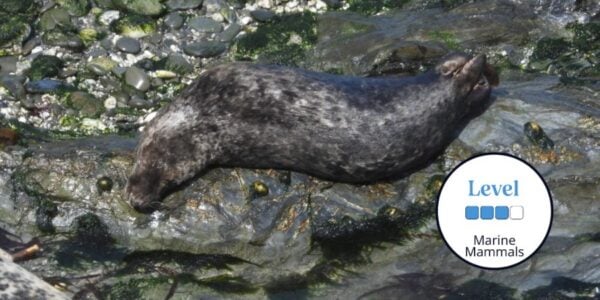
Fri 26, July 2024 - Fri 06, September 2024
The webinars will take place on Fridays 5:30 pm – 6:15 pm on the following dates:
- Week 1: 2nd August 2024
- Week 2: 9th August 2024
- Week 3: 16th August 2024
- Week 4: 23rd August 2024
-

Fri 08, November 2024 - Fri 20, December 2024
The webinars will take place on Fridays 5:30 pm – 6:15 pm on the following dates:
- Week 1: 15th November 2024
- Week 2: 22nd November 2024
- Week 3: 29th November 2024
- Week 4: 6th December 2024
No current dates for this course? Click here to view all the upcoming Natural History courses.
Progress Your Learning
This is a training course from the Field Studies Council, delivered by expert tutors with an approachable learning style. After attending this course, you may like to progress your learning with further relevant courses or branch out into other areas of natural history. The Field Studies Council offers both online and in person courses, so you can choose the learning style that suits you best.
The course gives you the opportunity to immerse yourself in a new subject and acquire novel skills. Our online portal gives you time to study at your own pace and fit the lessons around your own schedule.
If you have any questions about our courses please check our Frequently Asked Questions or email [email protected].
Group Bookings Made Easy
If you have a group of 10 or more individuals wanting to complete one of our courses, our team are available to discuss your options – from discounts to private team courses. Click here to find out more!
You can rest assured that the absolute best content from an expert in environmental education will be at your fingertips. In choosing a Field Studies Council course, you will be joining thousands of people who learn with us each year.

